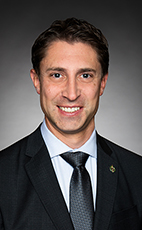- Apr/1/22 12:08:19 p.m.
- Watch
79 words
- Hear!
- Rabble!
- Apr/1/22 12:09:02 p.m.
- Watch
- Re: Bill C-245
122 words
- Hear!
- Rabble!
- Apr/1/22 12:09:39 p.m.
- Watch
- Re: Bill C-245
103 words
- Hear!
- Rabble!
- Apr/1/22 12:10:42 p.m.
- Watch
35 words
- Hear!
- Rabble!
- Apr/1/22 12:11:37 p.m.
- Watch
That the membership of the Standing Committee on Procedure and House Affairs be amended as follows: Ms. Gaudreau (Laurentides—Labelle) for Mr. Therrien (La Prairie).
43 words
- Hear!
- Rabble!
- Apr/1/22 12:11:53 p.m.
- Watch
34 words
- Hear!
- Rabble!
- Apr/1/22 12:12:21 p.m.
- Watch
150 words
- Hear!
- Rabble!
- Apr/1/22 12:15:43 p.m.
- Watch
128 words
- Hear!
- Rabble!
- Apr/1/22 12:15:43 p.m.
- Watch
139 words
- Hear!
- Rabble!
- Apr/1/22 12:15:43 p.m.
- Watch
154 words
- Hear!
- Rabble!
- Apr/1/22 12:15:51 p.m.
- Watch
104 words
- Hear!
- Rabble!
- Apr/1/22 12:16:38 p.m.
- Watch
92 words
All Topics
- Hear!
- Rabble!
- Apr/1/22 12:17:45 p.m.
- Watch
88 words
- Hear!
- Rabble!
- Apr/1/22 12:18:20 p.m.
- Watch
176 words
All Topics
- Hear!
- Rabble!
- Apr/1/22 12:19:37 p.m.
- Watch
25 words
- Hear!
- Rabble!
- Apr/1/22 12:19:52 p.m.
- Watch
26 words
- Hear!
- Rabble!
- Apr/1/22 12:20:21 p.m.
- Watch
Question No. 333—
Questioner: Laila Goodridge
Question No. 334—
Questioner: John Williamson
Question No. 335—
Questioner: Jamie Schmale
Question No. 336—
Questioner: Tony Baldinelli
453 words
All Topics
- Hear!
- Rabble!
- Apr/1/22 12:20:21 p.m.
- Watch
12 words
- Hear!
- Rabble!
- Apr/1/22 12:20:29 p.m.
- Watch
7 words
- Hear!
- Rabble!
- Apr/1/22 12:20:52 p.m.
- Watch
- Re: Bill C-13
2647 words
All Topics
- Hear!
- Rabble!













